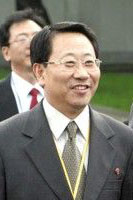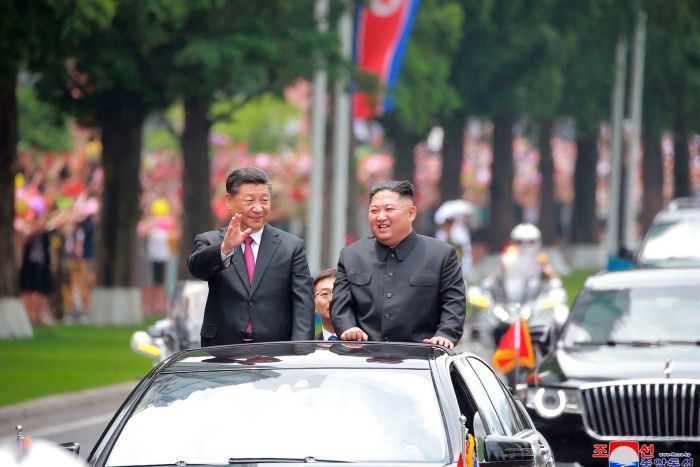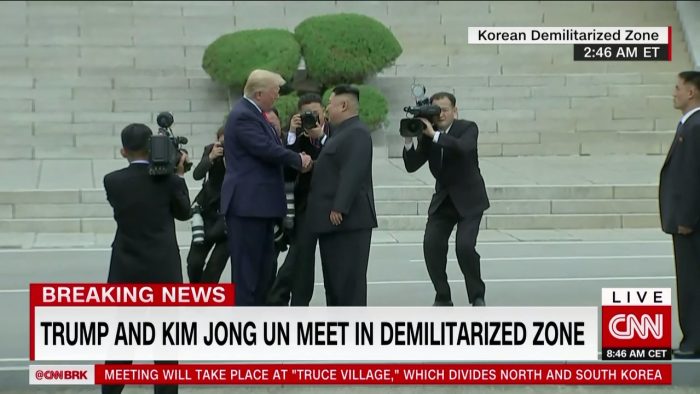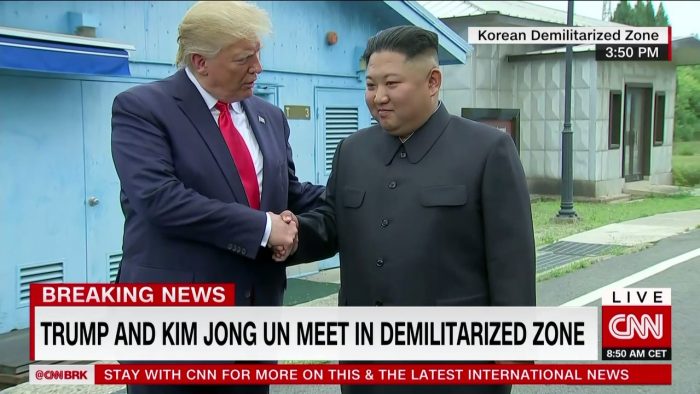Former North Korean ambassador may be new point man in US-NK talks
North Korea appears to have appointed a long-time veteran of international diplomacy as point man in the new round of denuclearisation talks with the United States, a diplomatic source in Seoul confirmed on Friday.
North Korea has indicated that former ambassador to Vietnam Kim Myong Gil would act as counterpart to U.S. Special Representative Stephen Biegun, the source said, speaking on condition of anonymity.
 Left: Former ambassador to Vietnam Kim Myong Gil
Left: Former ambassador to Vietnam Kim Myong Gil
South Korean media, citing unnamed diplomatic sources, reported on Thursday that Kim Myong Gil would be taking over for Kim Hyok Chol, the North Korean diplomat who served as Biegun’s counterpart ahead of the Hanoi summit, which collapsed with no deal in February. [In June, CNN reported that Kim Hyok Chol, a former ambassador to Spain, was alive and in state custody, contradicting a South Korean newspaper report that he had been executed for his role in the summit breakdown.]
The collapse of the Hanoi summit was a major setback for North Korean leader Kim Jong Un, who, several sources said, was led to believe by hawkish aides like former general and spy master Kim Yong Chol that he was about to win sought-after sanctions relief in return for a promise to partially scrap nuclear facilities. Kim Yong Chol was also removed from his position as counterpart for U.S. Secretary of State Mike Pompeo, but has since appeared at some public events alongside Kim Jong Un.
After meeting Kim Jong Un on Sunday at the DMZ, President Trump said that the two sides had agreed to name teams to resume talks that have been stalled since the previous summit. According to a fact sheet by South Korea’s Unification Ministry, Kim Myong Gil was previously a member of delegations at the United Nations and the failed six-party talks, aimed at reining in North Korea’s nuclear and missile programmes that it pursued for years in defiance of U.N. Security Council sanctions.
If the appointment is confirmed, Kim Myong Gil’s long experience as a diplomat could pose opportunities as well as challenges for Biegun, said Duyeon Kim, a Seoul-based adjunct senior fellow at the Center for a New American Security. “On the one hand, it will make Biegun’s conversations easier because Kim knows ‘diplomatic speak’ and the issues very well, but his knowledge and experience means that negotiations could also get tricky,” she said. “North Korean diplomats pride themselves for knowing the U.S. better than Americans.” Kim added, “At the end of the day, it almost doesn’t matter who the lead negotiator is because they get their marching orders from Kim Jong Un.”
[Reuter]



